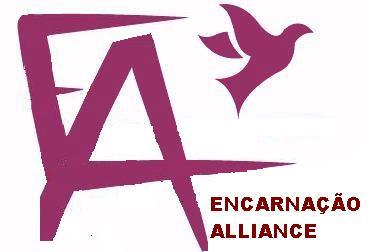Home Introductions Economic Realities 1 ECONOMIC DISCIPLESHIP Biblical Economics Personal Economic Discipleship Church Growth and Economics2 POVERTY ANALYSIS 3 COOPERATIVE PRACTICE4 SELF-HELP GROUPS 5 MICRO-FINANCES 6 ENTREPRENEURS Budgets and Cashflow 7 ECONOMIC THEORIES Global Economics Development Economics Urban Economics 9 INTEGRATION Student Papers READINGS

Welcome to TUL560 Community Economics
We will SKYPE for an hour and half each week. Much of this course is built around your internship with a local NGO that is involved in communty economics, cooperative developemnt, self help groups, microfinances, savings schemes etc.
Abbreviations used: MFI = MicroFinance Institutions, MED = Micro Enterprise Development, BDS = Business Development Services.

Course Description
This course introduces students to training slum dwellers in biblical economics, cooperative economics, savings cooperatives, micro-enterprise, entrepreneurship with reflections on global economic systems.
I.3Ú4 Course Description This course introduces students to training slum dwellers in biblical economics, cooperative economics, savings cooperatives, micro-enterprise, entrepreneurship with reflections on global economic systems. II3Ú4 Expanded Course Description This course relates biblical and theological perspectives on human development to the theory and practice of community wealth building. Special emphasis is given to considering how working men and women in the slums might use micro-enterprises and individual development accounts to create a better environment for asset building and ownership. This course will build from reflections on Kingdom economic principles throughout the scriptures.3Ú4 It will expose the students to theory, policy and practice in community based economic development and to help them read and think critically about these ideas.3Ú4 Students will develop internal organizational processes for registration of churches, quality bookkeeping, and deacons development processes for their ministries.3Ú4 The candidates will be able to plan and initiate small business programs as transformational mission, such as: establishing revolving loan fund, micro-enterprise programs; cooperatives, and the techniques related to strategic business planning among the urban entrepreneurial poor. III.3Ú43Ú4 Course Rationale Do not be hard hearted or tightfisted towards your poor brother. Rather be open handed and freely lend him whatever he needs. (Deut 15: 7-8) The need to come up with strategic, sustainable and transformational poverty alleviation program for churches and faith-based organizations cannot be denied nor be met with just talks and scholarly dissertations by theologians and urban poor workers. The vicious cycle of poverty in the country must be cut to its throat and uproot the very cause of this social cancer not tomorrow but today. This course will examine the root causes of poverty and theory and practice of community economics that lead people to have a poverty mentality. Candidates will be able to understand the relationship between the Redemption Mandate and Creation Mandate in fulfilling the Great Commission by re-examining3Ú4 Stewardship Theology applied in Community Economic Development. The creation narratives of Genesis provide the essential pre-suppositions relating to Gods original design for mankind to control, have full dominion over creation, the animal, plant kingdoms, aquatic resources, and minerals derived from living and non-living things around the world. Biblical economics involves an understanding of triad of powers in society such as the Government (law-maker & law enforcer), the Marketplace (the economic influence ), and the Masses (the low-income market, cheap labor force, and the electorate) versus the Power of the Most High God manifested through the Church. This course reflects the following values Participation by the poor, which will open their minds and equip them to take responsibility for their lives, choosing the gospel in freedom, not in desperation or as a crutch. Enabling them to see themselves not as victims or oppressed, but as people made in Gods image and, accordingly assume responsibility for their future. The church is an instrument that opens the world to its destiny in the kingdom. Through their activities, Christian MED / MFI can strengthen the church by restoring people to their identity and enable them to realize their role as stewards of creation and as servants of others. To show proven MFI & MED as an effective method of assisting people to escape the lowest levels of poverty. The ultimate concern of Christian MED / MFI is to open the community to experience the kingdom of God. The practical part of the course will enable the candidates to see the community through the eyes of the Redeemer by means of holistic community needs assessment tools.3Ú4 Through an internship, students will be exposed to models of successful community economic development programs being operated by faith-based organizations yet empowering the real target urban poor community folks..

Course Outcomes
Course Outcomes
IV. Student Learning Outcomes
By the end of this course students will be expected to:
Cognitive (Head):
1. Kingdom Economics: Understand a comprehensive3Ú4 theology of creativity, production, stewardship; redistribution, work and rest, ownership and other Biblical principles evidenced in a theological training presentation for slum-dwellers with only elementary level education.
2. Community Economics: Understand methods and strategies to alleviate different levels of poverty.
Level 1: Proclamation of Good News to the poor and the effect of conversion and entrance to the community of faith on work habits, motivation, relational skills, integrity etc.
Level 2: Analyses and assessment of poverty before implementing MFI and MED.
Level 3: Local
Cooperative economics evidenced in a small savings, self-help group (SHG or other cooperative ventures
Micro finance operation and its functioning for those among the poor who have3Ú4 demonstrated some small business capacity.
Level 4: National
Micro Enterprise Development (MED) and Business Development Services (BDS)
Be familiar with governmental economic development plans and policies and local strategies to enhance self-reliance and community economic stability
Level 5. Economic Systems
Understand how different types of economic structures impact community economic stability and community self-reliance.
Affective (Heart):
Students will have developed a passion and concern for the families in the slums with a desire to serve them on through MFI and MED project.
Students will regard MED with high value.
Students will desire to become or to foster Kingdom entrepreneurs.
Practice (Hands):
Poverty Eradication Project: Students during the practicum of the course or within six months will participate in a team implementing actions which will expand the economic influence of a slum church.
Basic Small Business Management Skills: Students will have learned the basic business building principles and use of standard tools in strategic micro-enterprise development and management.
Be able to read financial statements, understand simple bookkeeping and banking concepts and evaluate the viability of small business ventures (This will be developed more fully in TUL 640 Entrepreneurial and Organizational Leadership).
Be familiar with how to write a basic strategic, sustainable and transformational business plan (This will be developed more fully in TUL640).
Coaching: Have worked with an experienced practitioner to facilitate adoption of a small savings scheme, microfinance or cooperative economic process in a particular slum, and helped the community to use business techniques.

Assignments
The course is built around four project areas...
Lorem ipsum dolor sit amet, consectetur adipisicing elit.

Readings
Many of the readings are scanned on the site. There are a few books you need to buy.
Required Texts
Readings
Required Materials marked with an asterix.3Ú4 Others recommended.
*Bussau, David & Russell Mask. (2003). Christian Micro enterprise development
de Soto, H. (2003). The Mystery of Capital: Why Capitalism Triumphs in the West and Fails Everywhere Else, Basic Books.3Ú4 (Amazon $10.88 or Kindle $9.99)
*de Soto, H. (1989). Informal Housing3Ú4 The Other Path. (J. Abbott, Trans.). New York: Harper & Row. (Amazon $10.77, Kindle $9.99)
*Grigg, V (2010). Conversations on Kingdom Economics. Access at http://www.urbanleaders.org/home/publications.html (Use Guest, Password: matul2010 to Access)
Santos, M. (1979). The Shared Space. London and New York, Methuen. (hard to find, out of print)
Yunus, M. (2003). Banker to the Poor: Micro-Lending and the Battle Against World Poverty. New York, Perseus Books. (Amazon $10.20 Kindle $9.69)
*Greer, P. and. Phil. Smith. (2009). The Poor Will Be Glad. Grand Rapids, Zondervan. ($6.48 on Amazon new, $7.98 kindle)
*Ledgerwood, J. (1999). Microfinance Handbook: An Institutional and Financial Perspective. Washington, The International Bank for Reconstruction and development/World Bank.3Ú4 (Amazon $35.59 new, kindle $13.27)


